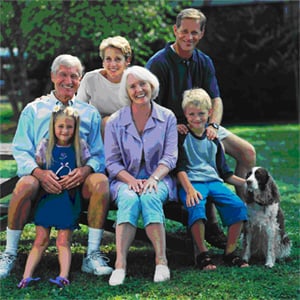
When the Gill Foundation awarded DDB its advertising work, it presented the ad agency with research. One study showed that more than 80 percent of Americans believed that discrimination on the basis of sexual orientation should not be tolerated in the workplace. Making this statistic its starting point, DDB, in collaboration with director Doug Pray of the production company Oil Factory, filmed minidocumentaries to expose work-related discrimination. According to Gutierrez, ‘‘TurnOut’’ had been originally slated for early 2004, but after San Francisco’s mayor stirred up media attention by issuing marriage certificates to same-sex couples in February, DDB and the Gill Foundation delayed the launch. The foundation feared that the political climate had become too volatile for ‘‘TurnOut,’’ the intent of which was to encourage a more cerebral discussion of LGBT issues.
With the November election approaching and the media fervor about LGBT issues showing no sign of abating, the Gill Foundation finally aired the first ‘‘TurnOut’’ television spots on July 5, 2004. The minidocumentaries appeared on TV in states that allowed employees no legal recourse if they were discriminated against because of their sexual orientation. Modeling the campaign after past civil-rights cases, DDB wanted to portray real people coming out in the face of opposition. Finding volunteers to do it was difficult but necessary, according to Pray, who filmed the spots. Gutierrez told Advertising Age’s Creativity, ‘‘In our concepting phase, we realized there’s probably no moment in the Civil Rights era that better illuminated white folks than the Rosa Parks bus incident. Her small act of courage served as a great national commercial for civil rights.’’ Detroit native Herrera came out by setting a picture of her girlfriend on her work desk. Calhoun, another subject for ‘‘TurnOut,’’ sent a note that explained to his bosses that he was gay and about to be in a commercial. The six television spots then directed viewers to http://www.TurnOut.org to read about the outcomes of the employees’ actions. All six employees received a range of responses. Kimya Ayodele was fired after she came out. According to the Denver Post, her tires were also slashed, and coworkers verbally abused her after she dated someone from work. Herrera had a different experience. ‘‘More people would come up and talk to me,’’ she told the Denver Post. ‘‘Everyone is more helpful. It’s more like a team now. I don’t feel like the outside person.’’ Once people visited http://www.TurnOut.org, they were exposed to a wider range of issues regarding LGBT rights. One bullet read, ‘‘Did you know . . . Forty-six states have failed to enact laws that address crimes motivated by prejudice against gender identity?’’ Other campaign efforts involved sending voter-mobilization tool kits to more than 250 organizations with a collective audience of 4 million voters. Three different print ads appeared, featuring copy such as, ‘‘For gays and lesbians, America is 14 states that recognize our right to live free from job discrimination, and 36 states that don’t.’’ The campaign’s website went offline after the election.




